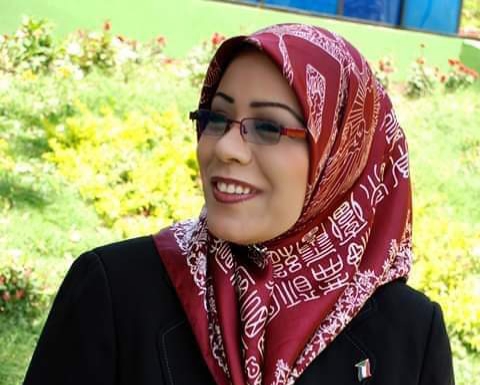Opinion
Criminal Responsibility for International Crimes

Dr. Inas Mohammed Ahmed
Since the emergence of humanity on Earth, conflicts and wars have accompanied it, bringing cruelty, suffering, and brutality. Over time, as humanity evolved, so did weapons, becoming more numerous and increasingly destructive.
Historically, wars were governed by customs and norms agreed upon by ancient societies. However, with the escalation of conflicts and the development of more destructive weapons, these norms became insufficient. This led to the establishment of international laws aimed at regulating and mitigating conflicts. Yet, despite these efforts, humanity experienced two world wars marked by grave violations: killings, torture, destruction, inhumane treatment, hostage-taking, civilian bombings, and mass rape. These atrocities prompted the creation of international laws to criminalize such acts, identify those responsible, and impose criminal accountability for breaches of international law.
The global efforts of the 19th and 20th centuries resulted in the Treaty of Versailles in 1919, which held the German Emperor and his senior commanders criminally accountable for their actions during World War I and imposed massive reparations for the Allied losses. The devastation of World War II further emphasized the need to determine responsibility for such destruction.
This necessity gave rise to the concept of criminal responsibility in international law, which aims to clearly identify perpetrators and hold them accountable. International law defines criminal responsibility as “holding an individual accountable for acts criminalized by law, particularly for committing international crimes that threaten international peace and security, thus warranting punishment on behalf of the international community.”
International Criminal Responsibility and War Crimes
Article 8(2) of the Rome Statute outlines fifteen acts constituting war crimes when committed in non-international armed conflicts. International criminal responsibility has evolved through real-world practices, such as the establishment of four ad hoc international criminal tribunals in the 20th century:
1. The Nuremberg Tribunal
2. The Tokyo Tribunal
3. The International Criminal Tribunal for the Former Yugoslavia (ICTY)
4. The International Criminal Tribunal for Rwanda (ICTR)
These tribunals significantly contributed to the recognition of international crimes and the principle of individual criminal responsibility, regardless of an individual’s official capacity or immunity. Positions of power or claims of following orders are not acceptable defenses in these courts.
Crimes Against Humanity
Crimes against humanity are among the gravest international crimes. The term first appeared in an 1890 publication where George Washington described King Leopold II’s atrocities in the Congo. It later re-emerged in the preamble of the 1907 Hague Convention IV.
Genocide
Genocide is defined as the systematic mass killing of unarmed civilians during armed conflicts, motivated by racial or ethnic factors. Examples include the systematic massacres in Darfur by militias targeting the Massalit tribe, involving killings, rapes, and even burying people alive. Human Rights Watch has accused these militias of ethnic cleansing and genocide between April and June 2023 and again in November of the same year. These atrocities displaced half a million people and caused hundreds of thousands of deaths, prompting the International Criminal Court in July 2023 to investigate war crimes in Darfur.
Similar massacres occurred in Wad Noura in Sudan’s Gezira State, where 100 civilians were killed, and thousands injured. Another massacre in Al-Hilaliya involved the starvation and poisoning of civilians, resulting in 216 deaths. Within 21 days, 1,237 civilians were killed in Gezira. Such crimes necessitate holding the militias accountable and labeling them as terrorist organizations.
Racial Discrimination and Apartheid
Racial discrimination involves systematic oppression, harm, and denial of rights to specific ethnic groups. The UN defines apartheid as a crime against humanity and has emphasized equality and dignity for all individuals regardless of race, gender, or religion.
The deliberate targeting of civilians in Sudanese regions such as Zamzam camp and areas like Biridik and Anka is a clear example of apartheid, warranting international accountability.
Torture of Civilians
Torture is one of the most widespread human rights violations, directly attacking human dignity. The United Nations has explicitly prohibited physical and psychological punishment since the 1949 Geneva Conventions. The 1984 Convention Against Torture further emphasizes the prohibition of torture during both peacetime and war, especially when directed at civilians.
The Rapid Support Forces (RSF) militia has committed numerous acts of torture and inhumane treatment against civilians across Sudan. These crimes are well-documented and undeniable.
Rape as a Weapon of War
Rape is often used as a weapon to achieve political objectives, subjugate opponents, or inflict severe harm, particularly during armed conflicts. International law classifies rape as a crime against humanity and a war crime, as outlined in the Geneva Conventions and their Additional Protocols.
The 1993 tribunal for the former Yugoslavia recognized rape as a crime against humanity and war crime, setting a precedent for international accountability.
Enforced Disappearances
Enforced disappearance involves the detention of individuals without legal justification, leaving their families in the dark about their whereabouts or fate. This crime is used to spread fear and instability among civilian populations.
The RSF militia has detained thousands of Sudanese civilians in inhumane conditions since the outbreak of war, with detainees facing starvation, lack of medical care, and torture. These acts represent gross violations of international human rights treaties.
Conclusion
The international community must act decisively against these crimes and hold the perpetrators accountable. The RSF militia’s actions are not only violations of law but also of morality, religion, and human principles. These crimes demand urgent international intervention to ensure justice and accountability.
Source: Al-Muhaqqiq



